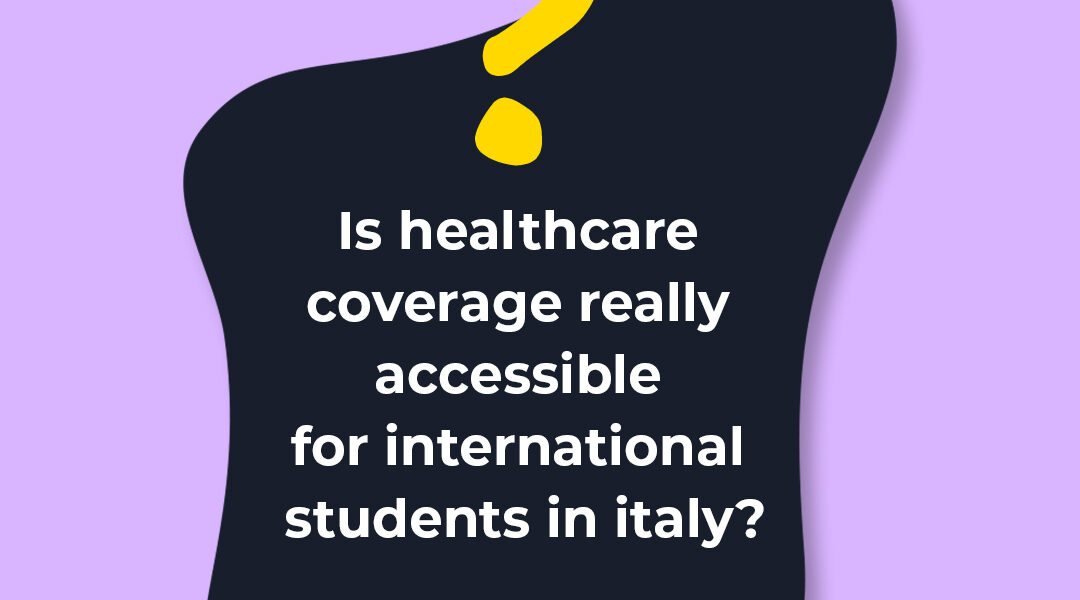
Is healthcare coverage really accessible for international students in italy?
Have you ever wondered how much a hospital stay, a surgery, an X-ray or an oxygen tank might cost? Have you ever feared getting sick knowing you could not afford adequate medical care? In Italy, the right to health is a fundamental, inalienable right guaranteed by the Constitution, available both to Italians and non-Italians, without discrimination. In fact, even those who are not in an irregular situation on the territory have the right to receive urgent or essential care. For these reasons, the costs of health and medical services are covered by the National Health System (NHS) and cannot be reduced or cut for financial reasons. A system that was perhaps taken for granted in the past, but which has been brought back to the fore by the covid-19 pandemic.
However, the gradual reduction of state-guaranteed services—such as longer waiting times, fewer available beds, and inadequate facilities and equipment—has led more people to seek private treatment, resulting in greater disparities in access to healthcare. In short, only those who can afford it are able to access quality and timely care.
This trend worsens when it comes to the health of the migrant population present on the territory, who often has fewer opportunities to access services and care, especially when paying. Moreover, not all are entitled to compulsory and free registration with the NHS, depending on the reason for their stay in Italy.
Those who come from non-EU countries and stay in Italy for work, family, political asylum, subsidiary protection or medical treatment reasons are entitled to compulsory and free registration with the NHS. Like those who arrive as minors in Italy or who acquire the Italian citizenship. On the other hand, those who are not entitled to it include those that temporarily stay in the country such as diplomatic or religious personnel, those working for international organisations and international students. These, however, are in any case required to be covered by health insurance, which, in addition to be essential for their health in case of accidents, the need for treatments or emergencies, is indispensable for obtaining a residence permit for study purposes.
Voluntary registration with the NHS requires an annual contribution, which is non-divisible and covers the whole year. Since the end of 2023, costs have increased, and today students must pay a minimum contribution of no less than €700 per year, while for other categories, this amount rises to a minimum of €2000. This amount is six times higher than the previous year and often falls on the shoulders of those who are legally in the country but currently unemployed or suffering from serious health issues. For this reason, many, discouraged by the increase in cost, prefer to purchase private health insurance.
To explore this further, here are some interesting articles:
- Italian healthcare system for EU and non-EU foreigners | Mazzeschi Legal Counsels
- Sanità negata: la storia di Emanuel Prenga, il ragazzo albanese che per curarsi in Italia deve pagare 2000 euro – la Repubblica
- Ssn, il costo di iscrizione dei cittadini extra Ue balza da 387 a 2mila euro – Il Sole 24 ORE
- Extra EU over 90 days – WAI Association Italy


